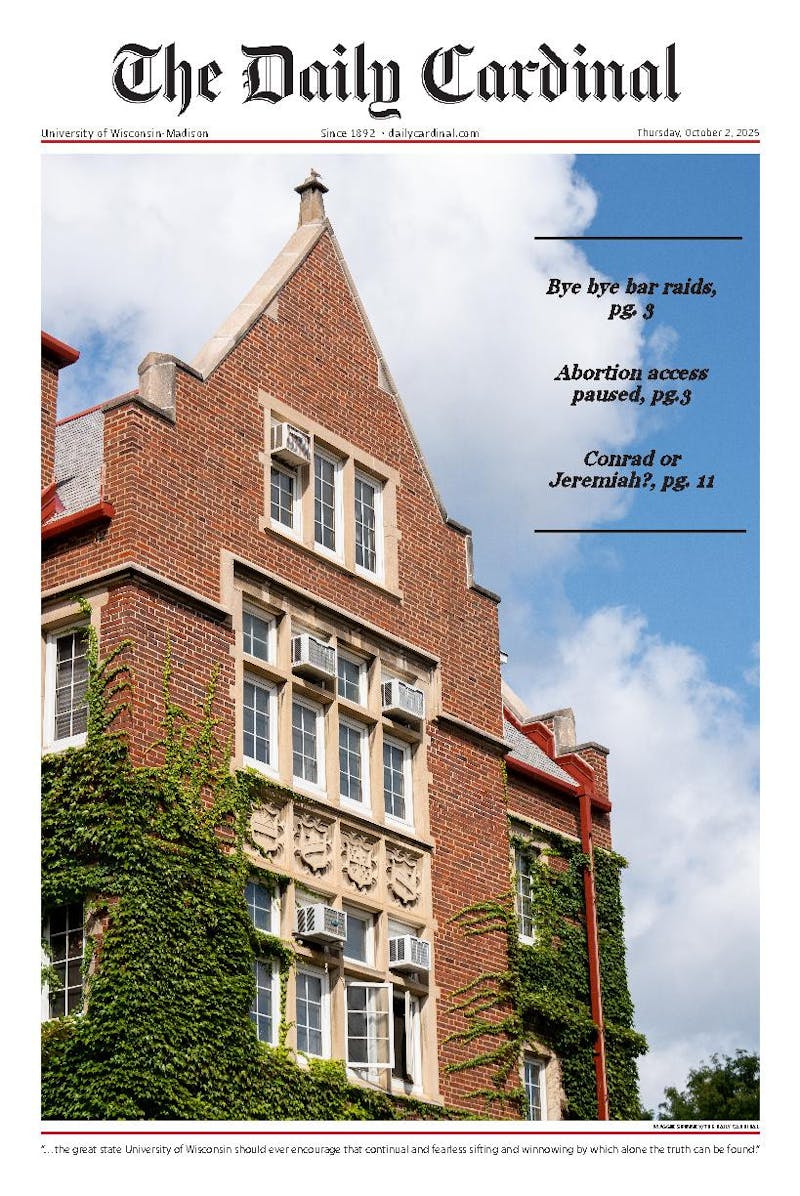These are the facts. On April 17, a small group of medical students paid an erotic dancer to perform at the Black Bag Ball, a formal event sponsored by the UW Medical Student Association and the Medical Alumni Association. The female dancer performed in the coatroom for several minutes before some other medical students asked her to leave. Rightfully and unsurprisingly, the media coverage of this year's Black Bag Ball has been extensive.
In response to much of the media coverage, the students and administration of the UW School of Medicine and Public Health have understandably attempted to dissociate themselves from those students who were directly involved in hiring the dancer for the event. However, I fear the manner in which we have gone about this—amongst ourselves and in print—has not clearly articulated where the fault lies. A brief scan of the media coverage of the Black Bag Ball reveals the following quotations from various SMPH students and administrative officials:
""The school said it ‘would never condone future p hysicians degrading women.'""
""We believe that students who are hoping to be physicians should be held to a higher standard.""
""We do not condone these activities and they are not consistent with the values of the school or profession.""
""[We are] saddened and embarrassed by the incident.""
Indisputably, the Black Bag Ball was an inappropriate setting for a strip show. Indisputably, those involved in orchestrating the show orchestrated a public sexual act that was nonconsensual for many, if not most of the students present. Indisputably, apologies and disciplinary action are necessary and expected.
But where we should have faulted the poor judgment of those who hired the dancer to perform at the BBB, we have instead made value-laden statements about erotic dancing as a whole. Where we should have apologized to the individuals who were forced to observe a public sexual act, we have instead demeaned the women and men who choose to engage in legal sexual acts in appropriate settings. Where we should have recognized our failure to create a culture of medicine in which our peers feel they and their boundaries will be respected, we have instead treated a woman—and, by extension, an entire group of people—like a stain on our white-collared coats.
These statements are especially problematic because we as health-care providers know that sex workers—a group of people that may be inclusive of, but not limited to, prostitutes, escorts, porn actors, dominatrices and erotic dancers—already experience unique health disparities and barriers to accessing medical care. These barriers range from fear of being arrested because of lack of health insurance to poor treatment at the hands of medical personnel. According to St. James Infirmary, a San Francisco clinic founded by sex workers for sex workers, ""When Sex Workers do talk about their work [with physicians], they often find that physicians and other healthcare providers fail to go beyond examining them for sexually transmitted diseases, and even that they do with disrespect.""
For all of these reasons, it is important to be painstakingly aware of ways in which our words may be perceived by the entirety of our patient population. We must not seek to shift blame or responsibility; we must focus sharply and exclusively on the internal issues this situation has exposed. We must work harder to create a community in which each person respects the safety and well-being of all individuals present on our campus and at our events. We must recognize that our status as medical students does not prevent us from making unhealthy decisions about alcohol—nor does it give us a free pass for those decisions.
These are the facts. Nonetheless, we have thus far chosen to focus on things like the reputation of SMPH and the alleged effects of erotic dancing on women. All in all, this response has largely served to patronize and further marginalize a group of already-underserved people. In our efforts to dissociate ourselves from the actions of a few students, we have stood on the backs of some of our most vulnerable patients. This saddens and embarrasses me. This is degrading to women and to all of our patients. And this is not consistent with the values of our profession.
Erica Andrist is a first-year medical student. The views expressed in this column are exclusively her own and not necessarily reflective of the collective stance of SMPH, its students or its administration.
Next week is Erica's last column of the year. E-mail her your questions at sex@dailycardinal.com.





